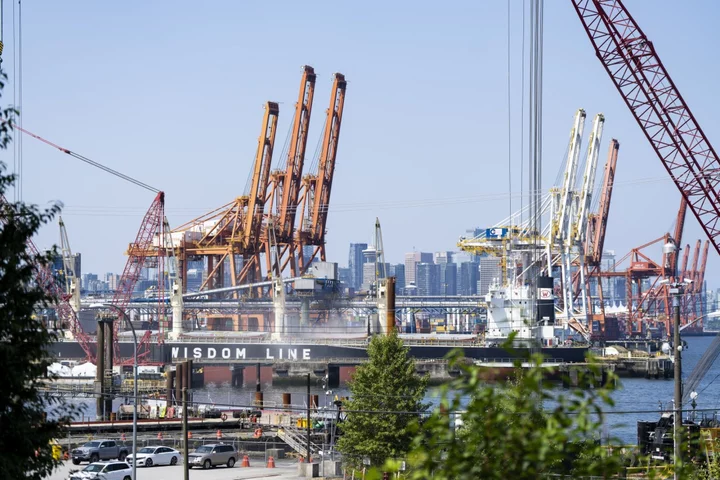A 13-day strike that disrupted shipments at Canada’s western ports is set to end after the dockworkers’ union and a group of employers agreed on a tentative deal.
The International Longshore & Warehouse Union, representing more than 7,000 workers, and the British Columbia Maritime Employers Association reached an agreement on a new four-year deal, according to a statement on Thursday. The parties didn’t release details.
The agreement paves the way for an end of the work stoppage at ports in Vancouver and Prince Rupert, the country’s busiest and third-busiest hubs. The employers group said operations are expected to “resume as soon as possible.”
The strike at ports that handle about a quarter of Canada’s total traded goods reduced arrivals of container ships and diverted vessels to US facilities — impeding imports of materials for manufacturing as well as exports of natural resources like potash.
“The scale of this disruption has been significant,” Labor Minister Seamus O’Regan and Transport Minister Omar Alghabra said in a joint statement. “The extent of it has shown just how important the relationship between industry and labor is to our national interest. We do not want to be back here again.”
The Canadian Manufacturers & Exporters trade group had estimated the strike caused daily trade disruptions amounting to C$500 million ($380 million). The maritime employers association on Tuesday put the tally of disrupted cargo at C$8.6 billion so far. The Canadian Chamber of Commerce warned the disruptions could fuel inflation.
More than half of business owners belonging to the Canadian Federation of Independent Business were affected by the strike through missed sales, delayed production or orders and the inability to export products. The world’s biggest fertilizer producer, Saskatchewan-based Nutrien Ltd., cut production at its Cory potash mine, citing the port stoppage.
It will take months before the supply chain backlog created by the strike is fully addressed, said Dan Kelly, president of the CFIB.
“To ensure our economy is not held hostage by another similar strike in the future, the government should consider making ports an essential service. It’s important that the ports are fully operational while new collective bargaining agreements are being negotiated,” Kelly said in a statement.
The strike shows workers are eager to recoup purchasing power they lost over the past two years of elevated inflation. In April, more than 155,000 federal workers also went on strike after wage talks with Prime Minister Justin Trudeau’s government failed.
--With assistance from Robert Tuttle and Laura Dhillon Kane.
(Updates with more details, comments from the second paragraph.)
Author: Randy Thanthong-Knight

